#LTCdallas
Challenges, Opportunities, and Reflections of the Texas Latina/o Theatre Community
On Friday, October 30, 2015, I woke up early, showered, packed, and hit the road for Dallas. In between a pit stop at Buc-ee’s (a Texas institution) and nearly shredding my voice to the (then just released) Hamilton cast recording, I couldn’t stop thinking about the weekend ahead. I was en route to the Latinx Theatre Commons (LTC) Dallas Regional Convening (#LTCdallas) where Latina/o theatre in Texas would take center stage.
One of the principal goals of the Dallas Regional Convening was to connect Latina/o theatre artists and allies and their organizations in Texas to the growing National Latina/o Theatre Movement that has been in high gear since the initial LTC Convening in Boston in 2013. This was an important opportunity to dialogue, network, and deepen relationships across Texas and beyond. Among the LTC’s goals was to create a space to document, archive, and discuss the history of Latina/o Theatre in Texas for national dissemination as well as to investigate the varying challenges in and between regions.
As part of the convening’s programming, on Friday night, Texas-based artists attended a production of Teatro Dallas’ The Wake at the Cedar Crest Mansion as well as a noche de cultura of Texas talent at Teatro Dallas’ intimate 45-seat blackbox theatre: Austin’s Teatro Vivo featuring Mario Ramirez, Emily Aguilar Thomas, and Leonel Garza and Ft. Worth’s Sound Culture featuring Tammy Melody Gómez and Greg Johnson (other artists such as Amparo García-Crow and Marisela Barrera were unable to make it due to severe weather conditions across the state). On Saturday night, convening participants attended a staged reading of David Lozano and Lee Trull’s Deferred Action at Dallas Theatre Center. Deferred Action is a co-production between Cara Mía Theatre Co. and Dallas Theatre Center that will run at the Wyly Theatre in April 12–May 14, 2016.
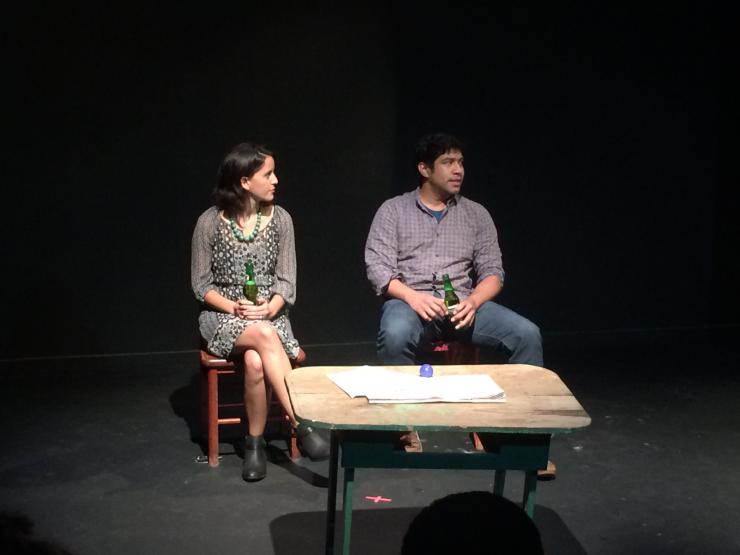
While the nighttime events were focused on networking and introducing audiences to Latina/o theatre in Texas, on Saturday afternoon at the Latino Cultural Center, the convening’s focus shifted to providing a platform for Texas artists to voice the good, the bad, and the ugly of making Latina/o theatre in Texas. The goal was two-fold: those based in the state were given a platform to dialogue about their experiences, while the LTC Steering Committee was able to listen, respond, and develop strategies to better serve the state.
The conversation consisted of 36 artists, playwrights, educators, professors, students, artistic directors, literary managers, administrators, and allies from across the state (including those that have left Texas for various reasons) accompanied by members of the LTC Steering Committee.
After a brief introduction by Clyde Valentín, director of the arts and urbanism initiative at Southern Methodist’s Meadows School of the Arts, who welcomed artists from across the state, Center Theatre Group’s Patricia Garza assumed her role as facilitator. Garza led us outside to the courtyard to do several cultural mapping exercises that allowed us to introduce ourselves in a more organic way and invited us to use the entire spectrum of space, removing any pressure to “perform.” After grouping attendees based on where we call home and number of years in the field, Garza encouraged us to introduce ourselves to anyone we had yet to meet. Overall, it was a quick and easy way to meet everyone in attendance and feel comfortable with the conversation that followed.
Once back inside, Garza led us through a conversation that included a small circle of five chairs and a larger circle surrounding it. Using an LTC model that has proven quite effective since the 2013 Boston Convening (See Brian Eugenio Herrera’s publication with HowlRound The Latinx Theatre Commons 2013 National Convening: A Narrative Report), the inner circle was comprised of Texas-based artists and was, subsequently, where the conversation took place. Members of the outside circle were there to listen, wait, and respond at the end of the conversation.
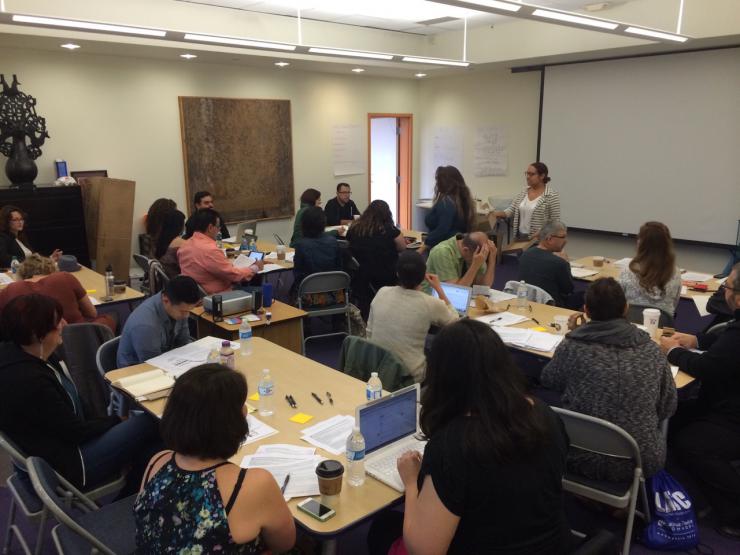
What is unique and wonderful about the Latina/o theatre scene across the state? What is working? What can we do together that we can’t do separately? What are the opportunities that theatre artists have in Texas? What are the challenges? How is the theatrical climate in Texas different compared to other regions in the United States?
Garza’s first prompt was for us to discuss what opportunities there are in Texas. What is unique and wonderful about the Latina/o theatre scene across the state? What is working? What can we do together that we can’t do separately? What are the opportunities that theatre artists have in Texas? What are the challenges? How is the theatrical climate in Texas different compared to other regions in the United States? And, perhaps most key, how can the LTC help? The second discussion topic was centered on the difficulties and challenges that Latina/o theatre artists face in the state. How can the LTC work to better address these challenges? What is the LTC’s role, if any?
Teatro Dallas Founder and Artistic Director Cora Cardona quickly broke the ice, telling the room that “If you have a vision, you can make it happen in Dallas.” Others echoed this statement. One thing was clear, in Texas’ urban centers such as Dallas and Houston, there is no lack of funding. As the state continues to grow with the creation of more jobs, people are staying for the increased opportunities in the arts that this boom has created. There are more opportunities to develop relationships and grow artists that didn’t exist before.
However, many mentioned the issues of funding equity and discrimination in corporate funding. There is lots of money in Texas, but the money is not shared. In an October 2015, Op-Ed in the Austin American-Statesman, “We need to support more local Latino theatre,” professor and playwright Roxanne Schroeder-Arce spoke about racist funding practices in Austin. As Schroeder-Arce notes, Latina/os comprise one-third of Austin yet few opportunities exist for Austinites to see Latina/o stories on stage. These numbers appear in arts funding as well. Schroeder-Arce explains how Austin’s biggest Latina/o theatre company, Teatro Vivo, has a modest budget well under $100,000 in comparison to the city’s largest company, ZACH Theatre, which maintains an annual operation budget of more than $6 million. These numbers are reflected in grants awarded by the city, as well. For instance, in 2016 the City of Austin Cultural Contracts office gave Teatro Vivo $27,366 compared to $200,000 for the ZACH.
The issue of formula funding that Schroeder-Arce speaks against was a frequent topic in Dallas. As Schroeder-Arce argues, “If one looks at the operating budgets of the two organizations, that might seem fair. But, fair is not equal. Latino companies need more support to build their audiences and nurture their artists.” This isn’t just happening in Austin. Revenue from Houston’s HOT (Hotel Occupancy Tax, $15.7 million in 2014) largely funds major regional organizations such as the Houston Ballet, the Alley Theatre, and The Menil Collection (none of which is dedicated to producing art by and/or for people of color). These discrepancies in funding reveal institutionalized racism in funding practices happening throughout Texas. Artists from Dallas, San Antonio, and Houston all spoke about the relationship between funding and institutionalized racism.
Despite issues surrounding funding, many claimed that there is more demand for Latina/o plays and characters on Texas stages. According to residents of South Texas and the Rio Grande Valley, there is a lot of interest right now in Latina/o stories, which has led to more opportunities. Given the regions’ demographics, casting Latina/o plays is easy and there is a prevalence of original stories of the US/Mexico border such as South Texas native Tanya Saracho’s El Nogalar. Even so, there remains an underlying feeling that in order to “make it” you have to leave the Valley such as Saracho and Raúl Castillo’s did. This notion of having to leave in order to “make it” as a theatre artist was echoed from artists all across the state. Several artists spoke of the outsourcing of talent that occurs in several regions such as El Paso and Houston, regions with fewer opportunities for Latina/o talent because the producing organizations don’t see local talent. There are college graduates who want to stay in these regions but don’t have the opportunities. There is a lack of sustainability in the arts and a feeling that “this is as high as it gets” unless you leave the city which perhaps explains the large number of native Texas artists who no longer live or work in the state.
Aside from the issues of funding and the positive aspects of making Latina/o theatre in Texas, one thing was clear among all participants: the state’s population demographics do not match representation on stage.
In Dallas, there are four different Latina/o theatre companies—Teatro Dallas, Cara Mía Theatre Company, Cambalache Teatro en Español, and Teatro Flor Candela—with unique aesthetics and missions (See “Dallas Latina/o Theatres: Dynamic Collaborations and Audience Expansion” by Teresa Marrero for more on Latina/o theatre in North Texas). In terms of quantity, Dallas is undeniably leading the state in professional theatre opportunities for Latina/o artists. While Dallas and Houston offer similar case studies for the arts in general, there is virtually no comparison in terms of Latina/o art-making. Houston has one company, Teatro Bilingüe de Houston, which in recent years has stopped producing their own work (See Richard Reyes). Likewise, the city’s leading professional theatres such as the Alley Theatre, Main Street Theater, and Stages Repertory Theatre seldom produce Latina/o work, if at all (It should be noted that Stages’ 2015 production of Kristoffer Díaz’s The Elaborate Entrance of Chad Deity was my highlight of the year’s theatre offerings in Houston).
Even so, there are a few indicators that the lack of representation by “mainstream” theatres may be changing. Dallas Theatre Center’s artistic collaboration with Cara Mía Theatre Company, The Elevator Project, has proven successful and presents a model that should be implemented across the state and beyond. Theatre Jones editor Mark Lowry has called this collaboration a “water shed moment” for theatre in Dallas. The Elevator Project produced the artistic and financial success of Octavio Solis’ Lydia in 2015 and will continue with David Lozano and Lee Trull’s Deferred Action in 2016. Despite these successes, the Elevator Project will not continue beyond this year. In Austin, ZACH Theatre began a similar collaboration with Teatro Vivo to present Latina/o TYA plays every other year, a series which began with Roxanne Schroeder-Arce’s Mariachi Girl and continued in 2015 with the wildly successful bilingual play Cenicienta by Rupert Reyes and Caroline Reck. Yet still, these collaborations only represent Dallas and Austin, although perhaps they can present a model to Houston and San Antonio for how to work together to co-produce Latina/o theatre and update representation across the state.
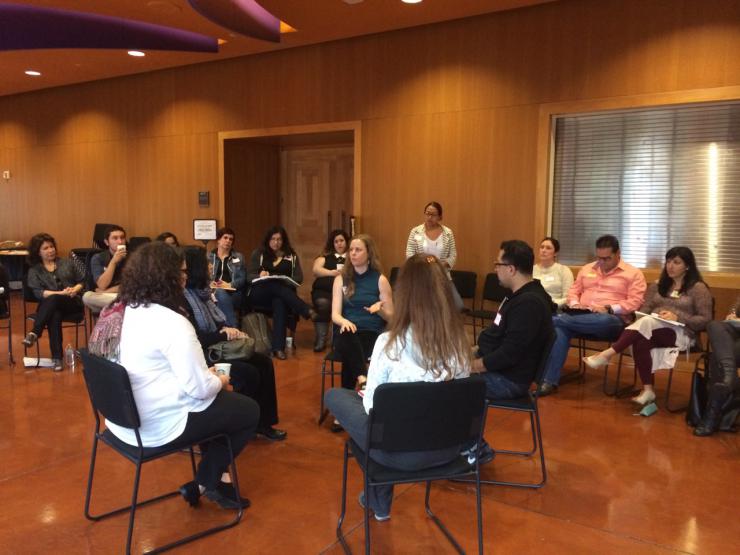
Events such as this allow artists to come together as one, occupy space together, and begin a dialogue that has been severely lacking in our state. Texas regions need to come together, have a discussion, find solutions, and maintain collaborations amongst a growing network of artists.
Admittedly, a two-hour conversation will not solve all of the challenges facing Latina/o theatre artists and allies in Texas. No sustainable resolutions were created to improve the theatre landscape across the state. We didn’t devise a plan to challenge racist funding practices. El Paso still remains excluded from the conversation due to its distance from the remainder of the state and its corresponding different culture. Mainstream theatre companies didn’t commit to producing more Latina/o stories and hiring more Latina/o artists both on- and off-stage. Yet, events such as this allow artists to come together as one, occupy space together, and begin a dialogue that has been severely lacking in our state. Texas regions need to come together, have a discussion, find solutions, and maintain collaborations amongst a growing network of artists.
The LTC has made these conversations possible. Events such as #LTCdallas are not utopian, but they provide a necessary platform that we need to use if we are going to change the theatrical landscape of both Texas and this nation. Now is the time for Latina/o theatre artists and allies in Texas to continue the dialogue from Dallas and to update the theatre narrative across the state and beyond.


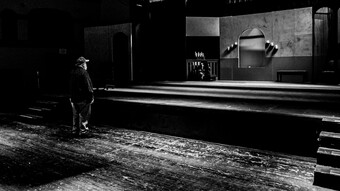






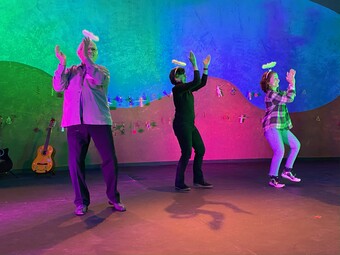

Comments
The article is just the start of the conversation—we want to know what you think about this subject, too! HowlRound is a space for knowledge-sharing, and we welcome spirited, thoughtful, and on-topic dialogue. Find our full comments policy here
Terrific and thorough report, Trevor-- Thank you
Loving this discussion. Thank you for the chronicling, Trevor. Yes, large historically white companies continue to eat up companies of color-- with no thought and action regarding how to engage communities-- like some of what you mention, Jonathan. Even if there is a token Latino play in these seasons, then, the audiences do not change and as artists we are often asked to cater to the audience that is already a part of these institutions. And/or blamed for the lack of Latino communities in the audience. It has to change! And while it's important to look at specific cities and states, Dallas and Texas are no exception to the national climate. Who's getting it right? How do we disrupt this marginalization and tokenism? How do we set our own table when our silverware is being given to these institutions to "serve" us?
I left Dallas thinking many philosophical thoughts. How do we figure out the forces that influence our access to money or not? How do we seek out guidance to learn the ropes of community, business structure, and art? How do we handle the success of one another? How do we share what we have? What does it mean to ascend as a community? Every community we encounter in the LTC becomes a microcosm of these questions. They are not simple questions. Some of us have great business acumen. Some do not. Each artist, each company is working extremely hard to move forward. How do we ease that forward motion for one another?
Thank you for adding these questions to the conversation, Elaine. It was so important to have your voice and perspectives in Dallas. I hope we can take the questions that you raise to public forums such as this and the Latina/o Theatre Commons Facebook page as well as future LTC events such as the Seattle Convening this April. While I don't have the answers, I think if we work collaboratively to respond to these thoughts, then we will have created a stronger movement and bettered this New American Theatre.
I appreciate the fact that Trevor took copious notes during the event and compiled them for this article. This is a living record of the conversation at the Dallas Convening, the only one I am aware of. I whole-hardheartedly agree with the frustrations mentioned by Courtney and David, particularly related to the Elevator Project. In relationship to the recent Oscars controversy around recognition of Black, Brown and Asian talent by the mainstream entertainment establishments, I keep thinking one thing: let's get the productions done our own way. For instance, the LTC commons might end up being an interesting model to nurture, particularly in light of post Chicago Carnival and current El Fuego projects. If we procure our own backers and promoters, maybe, just maybe, we can end up not needing to look for an invitation to their table. Maybe we can set our own.
Thank you, Teresa! Admittedly, my thoughts in this essay only represent a fraction of the 2-hour conversation that took place (not to mention, the entire weekend). Hopefully, others who were in attendance can use this space to add their voices to the dialogue and fill in any gaps I might have unintentionally left.
This is frustrating to hear that the Elevator Project is no longer. I'm also still frustrated about Formula Funding and how that works and the systematic racism still in place.
Overall, great article! I want to point out the Dallas Theater Center did not co-produce "Lydia". It was solely produced by Cara Mia theatre as part of the Elevator Series, a series conceived by the AT&T Performing Arts Center, giving "small" theatre companies in town access to the exclusive 6th floor theatre space at the Wyly. In my opinion, what appeared to be a watershed moment soon fizzled out. The elevator project was not renewed for this current season nor the next. New conversations around the community are no longer, "How do we gain access to the Dallas Arts District where ATTPAC, the Dallas Theater Center, and the Dallas Opera produce?" but "How can we create excitement for other companies in new spaces in different parts of towns?"
Thank you for your comments, David! As always, your voice is a valuable part of this conversation.
I apologize for my error about the Elevator Series. I think my error re: "Lydia" as a co-production can be attributed to how the Elevator Project was viewed by the general public. Until reading your comment, I always thought that these were co-productions (even after reading press releases, articles about it, and talking with Dallas-based artists).
Thank you David for acknowledging that the Elevator Series did not continue. I think speaking this truth is an important step in making the Dallas arts community stronger. I was excited about the program. But my excitement quickly faded when I realized that continuation of the program appeared to depend on box office receipts. I felt this put the onus on the small arts organizations invited to participate and that was not smart in the long run. Innovative programs such as the Elevator Series have to plan for significant loss in the early stages and be committed to carrying on regardless. And we have such a robust donor base in this area that I can't imagine how someone in this community could not have been convinced to further underwrite the program. Finally, the series never seemed to take into account that none of the patrons - especially the casual patrons of the organizations invited were accustomed to paying to park or significant handling fees. I don't understand how that was overlooked or not considered in the organizations' favor.